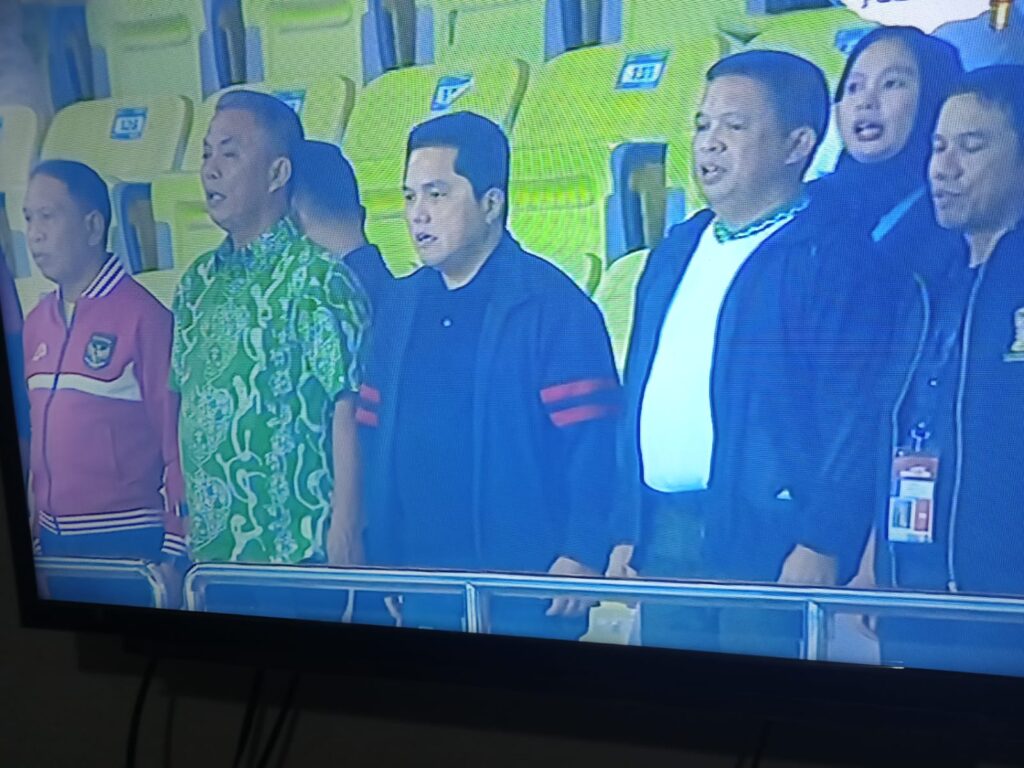
STRATEGIC ASSESSMENT. Indonesian football players and fans reacted with tears and outrage after the country was stripped of hosting rights for the Under-20 World Cup only eight weeks before the start of the tournament amid political turmoil over Israel’s participation, leaving Indonesian football at risk of further sanctions.
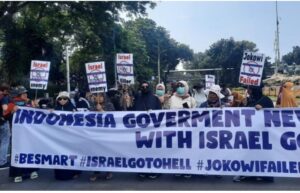
In an emotional meeting with Indonesian youth players and their coach in Jakarta on Thursday, Zainudin Amali, deputy chair of the national football association, apologized. Some players were seen shedding tears while others looked down sadly.
In an official statement on Thursday, President Jokowi urged all parties not to blame each other for the cancellation of Indonesia to host the U-20 World Cup. He said that as a great nation, Indonesians must look to the future and make this a valuable lesson for the country, especially in national soccer.
The cancellation of Indonesia’s hosting of the U-20 World Cup was not caused by a wave of opposition to the Israeli national team competing in the World Cup, and it made no mention of the matter in its official letter.
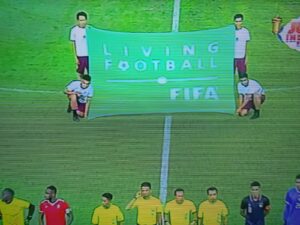
However, FIFA mentioned the Kanjuruhan tragedy, which occurred in October 2022. According to FIFA, Indonesia is still in the process of soccer transformation.
Indonesian Democratic Party of Struggle (PDIP) Central Executive Board Secretary-General Hasto Kristiyanto said his party was profoundly disappointed and saddened by FIFA’s decision to remove Indonesia as the U-20 World Cup host.

He stated that his party has never opposed Indonesia hosting the World Cup, but has only opposed Israel’s presence for humanitarian reasons, as well as the potential social and political vulnerabilities that the presence of the Israeli national team would create. He claimed that his opposition to the Israeli national squad was both constitutional and historical.
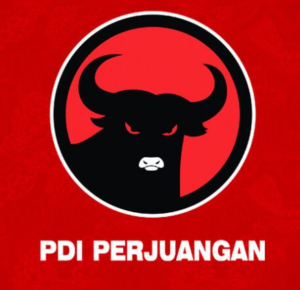
Social media account of Central Java Governor Ganjar Pranowo was suddenly loaded with comments criticizing the governor after FIFA officially stripped Indonesia from hosting the U-20 World Cup.
One of the main reasons for FIFA’s move is believed to be caused by the wave of rejection against Israel’s national team in the soccer competition, where Ganjar was one of the prominent figures who vocally expressed it. Criticism also came from those directly affected by the cancellation, such as Hokky Caraka, who is one of the players in Indonesia’s U-20 national team.
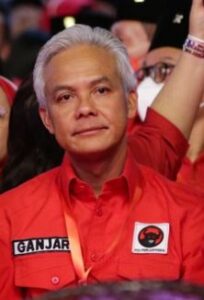
The politicisation of an international sporting event has highlighted domestic differences over Indonesia’s role in the wider Muslim world. How easily this issue has stoked ground tensions also suggests that elite politicking for the 2024 elections has truly begun.
Indonesia is slated to host the U-20 World Cup from 20 May-11 June 2023. However, the International Federation of Association Football (FIFA) has postponed the tournament draw in the wake of anti-Israel protests in Jakarta and elsewhere. It was originally scheduled to be held in Bali at end-March.
The 20 March Jakarta protests involved hundreds of pro-Palestinian individuals, including a group calling itself “Aksi 203”, which raised a large banner calling Israel “the enemy of Islam”. Its supporters were carrying Palestinian flags. Another group, the Islamic Brotherhood Front (Front Persaudaraan Islam, FPI, formerly the Islamic Defenders’ Front), burned the Israeli flag.

FIFA announced that it has decided to drop Indonesia as the host of the 2023 FIFA U-20 World Cup. “Following today’s meeting between FIFA president Gianni Infantino and president of the Football Association of Indonesia (PSSI), Erick Thohir, FIFA has decided, due to the current circumstances, to remove Indonesia as the host of the FIFA U-20 World Cup 2023,” FIFA said in its statement.
A new host will be announced as soon as possible, with the dates of the tournament currently remaining unchanged, it added. FIFA is also considering imposing sanctions against PSSI. Despite the decision, FIFA said it is committed to actively assisting PSSI, in close cooperation and with the support of the government of President Jokowi, in transforming Indonesian football following the stadium stampede of October 2022.
On Wednesday Fifa announced that it was taking the tournament away with a statement that made painful reading for locals. “Fifa has decided, due to the current circumstances, to remove Indonesia as the host of the Fifa U-20 World Cup 2023,” it said. Potential sanctions were mentioned.
Bali is mainly Hindu and perceived as a free-spirited resort for international tourists but, on 14 March, the island’s governor, Wayan Koster, wrote to the minister of sports to protest against Israel’s participation.
There have been suggestions Fifa already had concerns about the readiness of the hosts, but the countdown had well and truly started. Last Sunday Fifa postponed the draw, scheduled in Bali, an event long-awaited after the tournament had been delayed for two years by the pandemic.
Indonesian social media was set ablaze early on Thursday after world soccer’s governing body FIFA announced the removal of Indonesia as the host of the U-20 World Cup, with criticism and hate directed at politicians who propped up the resistance against the participation of the Israeli national team that eventually led to FIFA’s decision.
As Indonesian soccer fans feared a possible PSSI ban from FIFA, as well as the ensuing damage that the U-20 competition’s cancellation might have on the country’s credibility to host international sporting events, many have taken to social media to vent their frustrations toward politicians such as Central Java Governor Ganjar Pranowo and Bali Governor Wayan Koster from the ruling Indonesian Democratic Party of Struggle (PDI-P).
It has become apparent that Jokowi wants the show to go on, but the President’s assurance that the tournament would not affect Indonesia’s anti-Israel and pro-Palestine foreign policy has fallen on deaf ears.
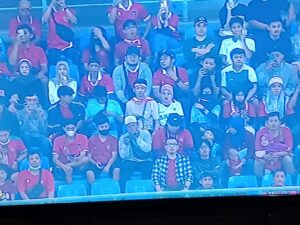
Indonesia’s soccer ecosystems including their supporter will sorrow on the ban of national team
If FIFA allows the tournament to still be held in Indonesia, anti-Israel demonstrations along with their security repercussions may follow, and ties between Jokowi and the PDI-P will be at stake at a time when he badly needs the party’s support.
But if FIFA strips Indonesia of its right to host the event, the country’s international credibility will be in jeopardy, and the national youth team groomed for the tournament, as well as the PSSI, will miss the golden opportunity to learn from the world’s best talents. The fallout of the embarrassing verdict may be far-reaching.





